Intrepid English Student Profile – Petra
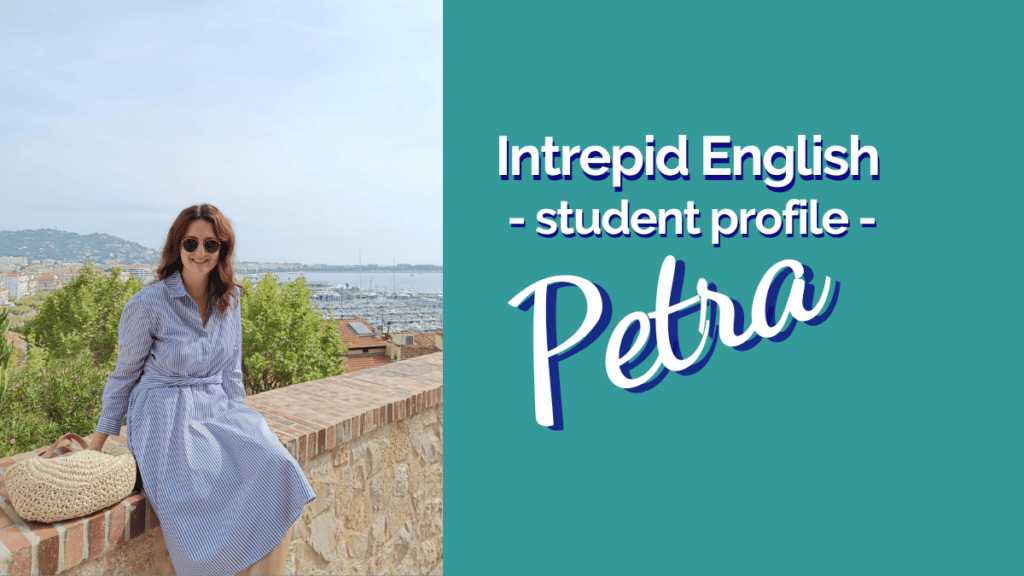
Hello again, Intrepid English Learners. Lorraine here!
I’m sure you know by now that I am incredibly proud of our wonderful Intrepid English Community. Not only is it a place where English learners can come to improve their reading, writing, listening and speaking skills, but it’s also a safe space where anyone can come to learn the communication and interpersonal skills they need to feel more confident. English is a tool for people worldwide to achieve their goals, live fulfilling lives and make a positive impact.
“Language can’t solve everything, of course, but it does carry our dreams and ideas.”
— Gloria Steinham
Today’s podcast is a recording of a conversation I had with one of my wonderful students, Petra. She started learning English with me several years ago and has since learned the communication skills she needs to succeed at work, settle into a new life in a different country and travel to new and exciting places.
We discussed her journey to feeling more confident when speaking English, the milestones she’s achieved so far and also what the future has in store for her.
I hope you enjoy today’s conversation as much as we did!
Lorraine
Hi, Petra, thanks for joining me today. How are you?
Petra
I’m very well. Thank you for having me today. How are you, Lorraine?
Lorraine
I’m OK thanks. I’ve been recording or trying to record podcasts all day. So I’m really in the zone. I’ve been having lots of deep conversations with people all day, which is one of my favourite things to do. So I’m in a really, really good mood today. How are you doing?
Petra
Yeah, it’s a sunny Friday looking forward to the weekend. So yeah. I’m in a similar mood as you.
Lorraine
Awesome. So maybe you could start by introducing yourself for everyone.
Petra
Yeah. Hello, everyone. My name is Petra. I’m originally from Austria, I grew up there, but moved to the Netherlands a couple of years ago.
Lorraine
Lovely. And you’re living in Amsterdam now, right?
Petra
Yeah, that’s right. The beautiful city of Amsterdam.
Lorraine
I’m really jealous. I love Amsterdam so much. I’ve visited many, many times and got several friends there. But it does seem like quite a hectic place to live when you when you’re walking down the street and there are bikes whizzing past you at all times of the day and night. What’s it like living there?
Petra
Oh, I love it. I absolutely love it, especially on a sunny day. I don’t like it so much in winter when it’s just rainy and grey. But most of the year I love it. And I think only the city centre is stressful. But that’s not really the place where you live. Outside, there’s lots of parks, lots of nice cafes, bars, and lots of nice people. So once you get used to all the bike rules… rules, there are not really rules. People just go crazy and if they ride their bikes if their life would depend on it. But it’s a nice city.
Lorraine
Being a pedestrian on the street and going to cross the road, you can definitely tell who’s a local and who’s a tourist, because the tourists just walk straight into the bike lane. And then they get the fright of their lives when they nearly get taken out by by a bicycle. Do you ever ride your bike in the centre?
Petra
Oh, yeah, every day I take the bike to go to my office, but also to really go anywhere. Speaking for the majority of Amsterdammers, I would say they don’t use public transport that often but more so the bike because it’s flat everywhere. Just a few bridges and it’s much faster to go from A to B.
Lorraine
Yeah. Okay, awesome. Well, I’ve certainly seen some people really looking super stylish on their bikes. I remember seeing a lady once in Amsterdam. And she was in like a, an evening dress, maybe even a ball gown with high heels and it was raining. She was holding an umbrella over herself whilst cycling and I just thought to myself, “I can’t be that graceful just walking, nevermind on a bike”. I really admire Amsterdammers for just that effortless grace.
Petra
Yeah. Yeah, I would agree. 100% Amsterdam women are like you say, their style of clothing, makeup and also the personality wise. It’s like they didn’t do any effort but they just look so chic and so beautiful.
Lorraine
It’s like, “Why is it so easy for you?” So, what languages do you tend to speak in Amsterdam then?
Petra
At work? English only. Unfortunately, I don’t have any fellow Austrians in my office. So, it’s English only. And at home, my partner, he’s also Austrian and we speak a mix of all the languages, of course, German, but he comes from a different part of Austria. So it’s a weird dialect mix of Austrian and a little bit of Dutch and of course, lots of English because yeah, I think English is becoming or lots of English words are used in all the languages nowadays.
Lorraine
Yeah. Wow. Do you know what the more people I speak to who are expats, you know, all over the world, they tend to have a mixture of many different languages that they speak. And yeah, again, it just really impresses me that people can just slip into a different language, seemingly effortlessly. For example, in Germany, they speak ‘Denglish’, they would say, which is a hybrid of Deutsch and English. But it sounds like people in Amsterdam are using a mixture of English and many other languages as well. Do you guys ever get mixed up?
Petra
Yes, I would say so. And ‘Denglish’ is definitely thing. It’s also called ‘Dunglish’ I think for ‘Dutch and English’. Yeah, when I when I go back, especially, and to talk with my parents, they hate it when when we talk ‘Denglish’ and use different English words. So I try to speak the language we speak at home. But sometimes you just miss words or they don’t come to your mind because the English word is so much easier and use it so often. So yes, it’s always a mix. And we we can’t separate like, “Now, I’ll just speak German”, or “just English”, or “just Dutch”, it’s always a mix of everything. It’s kind of weird.
Lorraine
But that’s, that’s beautiful. I think, you know, the diversity in your language. Particularly when you’re living in a place like Amsterdam, which is really diverse as well. It’s beautiful to embrace the mixture, the combination of different cultures and languages at the same time. Can you tell us a little bit about your experience of learning English in the past?
Petra
In Austria, we start learning English in school when we are about, I think 12 years. If anyone’s listening from Austria, maybe that’s not correct. But yeah, it’s called ‘Hauptschule’, or ‘Grundschule’, or how do you call it?
Lorraine
High school, isn’t it? Just the first year of high school.
Petra
Yeah, maybe in high school, yeah, where you start. And then I went to tourism school, we, of course, learned it there, and at university, and then I started a job in Austria, where I had to speak English occasionally, when talking to colleagues from all over the world.
Lorraine
How did you find that experience working in a place where you would have to speak English occasionally.
Petra
I think it was cool, back then. Because there were not that many international companies, I would say, in the area in area of Salzburg, where I worked. So, I thought it was super cool to practice de English on a regular basis, and also to work for an international company. And I thought I could speak English quite well at the time. But then I moved to Amsterdam, and I had to speak English, almost 24/7 from one day to the other. And it was so exhausting. I was very surprised and shocked at the same time. After a day of work, I was just tired. My brain was tired. It was super hard to express myself properly. I felt drained and stupid. Like “I can’t talk English. That’s so stupid. It’s such an easy language. You’ve spoken English for such a long time.” So that was really frustrating, a frustrating experience I would say. At first. I was trying really hard every day to get into the English international routine by myself. And after a couple of weeks, it worked really well. But I also still had German clients, so I could still talk German, and only English with my colleagues. But then a new opportunity arose, and I was able to take on the role of team lead for an international sales team. And then that’s when I kind of paniced in a way. I wanted to feel comfortable with English and not having to think about, “OK, how do I say this?” Or “How do I phrase that with my colleagues or with my team”. I wanted to focus on doing a great job and not just how I should express myself.
Lorraine
And then we met!
Petra
Then we met! Yes!
Lorraine
It’s actually quite a common experience for people to look for an English teacher later in their career after they’ve been working for a few years and either their company asks them to take on some responsibilities, which include using English, or maybe they relocate to a different branch, and they have to use English. And for many of my students, their experience of learning English was at school, or at university. So to learn English with a teacher, one-on-one and to really sort of tailor those English lessons to the specific needs of that student, it’s, it’s fascinating to me. Because there’s this period of time where the students and you were the same, Petra, where you realise that you can have fun with it, you can enjoy it. And, you know, it can be almost like a secret weapon, where you can have somebody to talk about the particular challenges that you’re working on, at work, or maybe even in your personal life in English, and have that sort of cheerleader that you can speak to once or twice a week, who will give you the skills and the language that you need to tackle that challenge. And I remember you going through that process with me. And it’s, it’s always lovely for me to see that sort of spark of, of joy, like, “Oh, great, I can actually enjoy this”. This can be something that is almost a pleasure rather than a chore. Do you know what I mean?
Petra
Yeah, but you also make it so easy to enjoy it, because I always look forward to talking to you because you’re such a sunshine, or you’re in such a good mood. So it’s easy talking to you and improving the English skills while doing so.
Lorraine
Oh, thank you, Petra. So how has being able to speak English confidently at work? How has that impacted you, in general?
Petra
It has impacted me in a way that I don’t have to think about words; they come now more naturally, more fluently, but I can really concentrate on the conversation and have more meaningful, impactful conversations with my team. Especially when when I’m doing performance reviews with them, that’s super frightening on its own, and now I don’t have to think about the words, or if they ask me a question, which I didn’t expect, and I can just focus on the answer rather than the words itself. If, if that makes sense.
Lorraine
Yeah, absolutely. And that’s, you know, that’s the joy of becoming more advanced in English, you don’t have to be searching for the words it takes. It takes a lot of the hard work out of it so that you can focus on interpersonal skills rather than just language skills, which which makes you a better leader, essentially.
Petra
Yeah, but it’s also a plus I have to say that here it’s such an international company I’m working for not everyone is native. And I still feel more comfortable speaking to non-native speakers than to native speakers, which is super ridiculous, because I know it’s just in my brain, but… nevermind.
Lorraine
It’s really common, because firstly, you maybe expect native speakers to be judging your English. People say this all the time. They’re like, “Oh, you’re an English teacher”, and then you can see that moment of panic where they’re just like, “Oh, my God, my English isn’t perfect”. But I say to them, “I’m not judging your language”. Basically, I can guarantee that their English is better than my ability to speak their language, that’s for sure. But I think partly because native speakers tend to speak so quickly, especially if they’ve never learned another language. They don’t understand how helpful and important it is to slow down when you’re speaking with someone when English is their second language or foreign language. So, maybe that’s partly why you you feel a little bit intimidated with with native speakers but I’m glad that you don’t feel that way with with non-native speakers now that’s that’s a massive leap forward.
Petra
Yeah, yeah. But defected I don’t feel insecure in front of non-native speakers, but do in front of native speakers just proves that it’s just in my head and I don’t have to have any worries. But it’s a work in progress. And I’m happy that I found you and you were helping me to improve it.
Lorraine
Yey!
Petra
And we’ve done so such amazing improvements over the years.
Lorraine
Really we have! You know, the thing is, it’s a bit tricky for me, because for many students, they come to me with low confidence. And so I don’t want to video them when they’re feeling low on confidence. But then when they inevitably break through that, and they love it, they’re enjoying speaking English. I wish I had that proof of where they were.
Petra
Yeah.
Lorraine
So that we can compare it to where you are now. But needless to say, I think if I’d asked you to take part in a podcast, even a year ago, maybe longer than a year ago, you would probably have screamed to run away. But now look at you go! Yey! It’s fantastic.
Petra
But I also have to say you have really good convincing skills.
Lorraine
Which I teach, as well, in Negotiations.
Petra
Check out the link, check out the link in the comments. Lately, I’ve discovered podcasts for myself. So I love listening to podcasts now.
Lorraine
Great. Which ones? What’s your favourite kind of podcast?
Petra
Educational podcasts in a way where they do a deep dive on specific topics like now, the Ukraine war, or why COVID is on the rise again. Sounds super boring, but there’s actually real fun and good podcasts out there. Like there’s a million podcasts, but there are really good ones as well.
Lorraine
I don’t think that sounds boring. I think that sounds fascinating. Have you got any particular recommendations?
Petra
Not an English one, unfortunately.
Lorraine
My recommendations for podcasts change week to week. But most of the time, I always go back to Story Collider, which is mostly American English speakers, but people telling a story connected to science, but you don’t have to be a scientist to understand it. I’m certainly not. But the storytelling skills involved are just wonderful. So I’ll leave a link to that underneath the podcast. And also, if you don’t mind a little bit of swearing, then the WTF podcast with Marc Maron is brilliant. He’s really funny. really insightful. Again, that’s American English. And you’ve got also the Allusionist, which is with Helen Zaltzman and that is all about language. And that’s British English. She’s got the most amazing accent as well. So those are three recommendations of podcasts that I’m really, really enjoying at the moment. So, if you’re listening to this on iTunes, or on Apple Podcasts or Spotify, then you can go to the episode notes and and find the links to those podcasts as well.
Petra
Cool. What I like best about listening to podcasts is that you feel even if you don’t know the person, or maybe it’s a famous person but it feels like they’re talking to you or you’re a friend to them or you just met them at a restaurant and they’re telling you a story.
Lorraine
Yeah. Yeah, so the Allusionist with Helen Zaltzman; she’s talking about language, but it’s language in the most sort of modern way, you know, it’s not just like old fashioned language, but she’s obviously extremely knowledgeable about language, but she is funny and relatable. And it’s just it’s so nice to listen to it and she really does make it seem like she’s talking directly to you. I think that is one thing that podcasts do really really well. It’s take an expert and make them feel like your best friend, Just sitting down just having a chat with them. Yeah, yeah. Awesome. I’ll actually I think I’m more and more people are listening to podcasts now. And students of mine asked me for recommendations for different podcasts as well. So, I might start asking my guests for their podcast recommendations because everyone’s got a different one, now. As you said, there are so many out there. And they’re so great for English learners because, unlike videos where you have the visual clues, with podcasts, you you really are honing that listening skill. And we’ve actually just released a new podcast. So it’s kind of an offshoot to the intrepid English podcast. It’s a new series called Lessons Learned. It really came out of the fact that I was interviewing really fascinating people who are experts in their field. The episodes are longer, they’re more in depth, they’re suitable for advanced English learners. And really, it’s about topics that matter, about topics that I think a lot of people don’t really know too much about. Or if they do, maybe they’re a bit scared of asking questions about these things like diversity and inclusion, or issues of race, issues of sexism. Controversial issues that are not normally featured in podcasts for English learners. But they’re the kind of conversations that my students really love to have. This has evolved into a new series. And I’ll also leave the link for that in the episode notes.
Petra
I’ll definitely check it out. Because that’s something I love when talking to you as well; you’re open-minded. And the topics that you pick for the lessons. Not only are they, of course, they’re tailored towards the student, but they’re always so ‘on point’, open-minded, hot topics… what’s just discussed the news or I don’t know… You’re a small world saver… or not saver, but how do you say if you want to make it better? improver?
Lorraine
Yeah, I mean, it was the phrase like, you know, you’re going to ‘change the world’. It’s quite overused now these days, but I do, I do definitely care so deeply about so many projects. This is why I love having deep conversations with people because I learn a lot from them and their experience. And they learn from me, obviously, English language skills, but they also hopefully, maybe explore topics that they might not have thought about otherwise. And think that’s genuinely, so much more enjoyable for me and for the students. Then just focusing on grammar points constantly. Although I do love grammar. It’s all about a combination of different different things to to really keep you stimulated and keep you interested and motivated.
Petra
Yeah. I also wanted to ask you a question. When do you listen to podcasts, like, on which occasion?
Lorraine
Well, I’m the one of these people who needs complete silence when I’m working. Obviously, when I’m teaching, I don’t have any music on or anything, but when I’m working outside of my lessons, I can’t listen to anything else, not even music. But I love to listen to podcasts when I’m out and about, maybe doing some shopping, going to the gym, driving, things like that. I used to be someone who listened to music all of the time, whenever I was awake. But nowadays, I much prefer listening to podcasts. Unless of course I’m chatting with my friend or something. And you know, it’s nice to have some background music on there. But going to the gym and listening to a really fascinating podcast. It makes me forget that I’m working out and you know, I’m learning something at the same time and quite often I’ll leave the gym feeling just amazing because I’ve expanded my mind as well as you know, worked out my body. So yeah, that’s that’s when I really really like listening to podcasts. How about you?
Petra
Similar. So, when I’m in the office, I wear my noise cancelling headphones, because also can’t stand noise around me when I want to focus or need to focus. So, for me it’s also outside of work, when I’m in a car or in a park having a walk or… shopping, I find it a bit too stressful because I really want to listen to everything but also I need to focus on my shopping. So it’s mostly in the car or at home when in the morning when I do my makeup or I’m in the shower or something like that.
Lorraine
Awesome. It’s such an easy way of developing your knowledge as part of your daily routine, isn’t it?
Petra
Yeah.
Lorraine
If you are interested in including the odd English podcast here and there into your daily routine, let me know. And I will give you a comprehensive list of ones that I think you will like, because there really are so many.
Petra
Yes, please.
Lorraine
No worries! (You’ll regret saying that). Can you tell us about some of the English milestones that you’ve achieved so far?
Petra
The first ones are definitely what we already talked about: the confidence in meetings, one-on-one meetings specifically, with my team members. When of when to notice that have felt more comfortable, then it was so much more fun. I didn’t sweat anymore, maybe that was a milestone as well. And at the beginning, I still felt nervous, especially when talking to more senior people. But that’s now also better. But I still don’t feel 100% confidence. And I think I never will. But I’m now at a level where I’m where I’m super happy. But maybe you can tell me if that’s normal, but I still have a feeling when I don’t speak English for two weeks, because I’m on vacation and just speak German, and then I come back to work and I lose my words again. Then it takes one or two days again, to get into the flow. But yeah, I would say is milestone wise, in confidence.
Lorraine
Yes, it’s very common for people to feel that way. It’s just a case of being rusty. But the way I think about it is when you return to work, after a holiday, you’re normally a bit rusty in all areas of your job, aren’t you? A little bit.
Petra
And I even forgot my password.
Lorraine
Exactly, exactly. So yeah, adding a second language to the mix, it’s completely understandable that it takes you a day or two to get back into the habit. I certainly wouldn’t feel like you’re unique in that sense. I think a lot of people struggle with that. But I’ve, I’ve had students for several years, who never really felt 100% comfortable speaking English at work. But they also never really felt, you know, really comfortable generally just sort of, in conversations with their superiors and things like that. And the moment that they did feel comfortable, and everything was easy. Their jobs didn’t feel challenging, and therefore didn’t feel fulfilling anymore. So they they moved on to a different job. So I think this feeling of stepping outside of your comfort zone regularly is actually really good. It keeps you challenged, it keeps you stimulated, it means that your your job is always pushing you a little bit to to improve. And, you know, I don’t know if, if it’s just English language or whether that’s always feeling that there’s something more that you can do and just striving to be a little bit better in things that you do. I think that that’s what makes us good at our jobs. It makes us strive to be better. So I don’t think that’s necessarily something to get rid of. I think it’s it’s there to tell you that you’re, you’re always pushing yourself just a little bit more and that’s a good thing. No?
Petra
Yep, if you put it that way…!
Lorraine
I am really convincing, aren’t I? Haha
Petra
The next podcast is about the art of persuasion.
Lorraine
I’d love that!
Petra
I can be your guinea pig.
Lorraine
Well, that would be my honour. You know, I speak with some incredible people every day, my amazing students I’m so so lucky to have the students that I have. And I do find it much easier to see the amazing potential in my students a lot. It’s a lot easier than finding the potential in in myself in many ways. So, I do struggle with a lot of the things that my students struggle with day in, day out, I think I can see them in a slightly different light and it’s absolutely a joy to cheerlead for them and help them to see how amazing they are in many ways.
Petra
Yeah, it’s so much easier to give someone else positive or also developmental feedback and doing it for yourself.
Lorraine
You said it much more succinctly than I could there, Petra. Thank you very much. My work here is done.
Petra
Awesome! Subscription ended.
Lorraine
Don’t even joke!
Petra
No, I could never. It’s too much fun.
Lorraine
What’s next for you then? In terms of English? Or in terms of your career? What do you have in store in the future?
Petra
For English? I mean, we did pronunciation I think it was last year. And I could, also my partner could, see a difference when talking English. He said, “Oh, did you have your English lessons recently, because your pronunciation for this or that word changed.
Lorraine
Cool!
Petra
So, I want to work on my pronunciation with you again. And also some areas when writing in a business email where we’re I don’t feel super comfortable. So I think that’s, that’s the next topics I would like to work on with you.
Lorraine
Absolutely, it’s really important to learn the foundational knowledge about pronunciation, and then to practise in context, so that I can correct you when you make mistakes, or when we can improve any particular area of your pronunciation as well. And when it comes to business emails, I love working on authentic material with my students, it’s so much more enjoyable than working on some generic textbook, for example. And when we were making the writing emails course, in the Intrepid English academy, this was something that Thomas really wanted to build in. He didn’t want the standard English textbook advice, we’ve seen that before, it’s not interesting. We wanted to add value to the students. So giving phrases, for ways to persuade people or ways to be more inclusive in your emails, be more diplomatic, things like that. These are really useful things to learn. But working on your own emails, one-to-one with me, that’s going to be so so helpful for you, we can correct things together, you can learn new phrases. So you’ve got a variety of different ways of saying similar things. And it’s, it’s always so helpful for me to work through that with you. Because the set you’ll tend to use the same language, in phone calls at work or in presentations, for example. So yeah, great. I’m looking forward to that.
Petra
Although I can really recommend the English course, writing email course on the Intrepid English platform, because Thomas did not just mentioned which phrases to use, but also the order, or what you say how to persuade or how to get an outcome or the reaction that you want. So, definitely check it out.
Lorraine
You’re gonna be the co-host soon, I think. This is great. You’re really good at this. Is this your first podcast or have you done this before?
Petra
Yeah, the first one, yes.
Lorraine
You’re a pro already. Well done!
Petra
I think we’re a good duo!
Lorraine
We are, yeah. It’s like a breakfast show, breakfast radio. Speaking of which, one of our teachers Gemma is actually a breakfast radio DJ.
Petra
No way. That’s so cool!
Lorraine
She’s amazing. She’s been doing it for years. And she’s absolutely incredible. She’s got the most beautiful, clear Scottish accent. So I always ask her to record our blog posts into podcasts because her voice is just so lovely. Is there a goal that you would like to achieve in English?
Petra
No, yes, my biggest goal was to really feel confident at work. It’s easier to speak informal, private English with friends, but also to speak in super challenging meetings, and speak confidently or comfortably. So, that was my goal. And as I said, it’s still a work in progress and but it’s definitely a good direction already. Good progress.
Lorraine
A lot better. Right. I think that’s the end of our podcast today, Petra, but I really want to ask you a question that I I ask everyone who comes on to the podcast: Do you have any advice to offer to English learners who might be listening to this? Anything at all that you think will help with their English learning journey?
Petra
I would say just go out there. We’re all on the same journey. Most of the time. It’s not about the words you use. If they’re perfect or not. It’s, it’s about the person you meet the person you are. And you’re a lovely person. And don’t be shy to show that or just because you don’t feel so comfortable with your English or use you might use the wrong words. Don’t let that hold you back.
Lorraine
Wonderful. Yeah, exactly. I mean, I don’t know about you, Petra, and the listeners, but if someone’s speaking to me in English, and it’s their second language, I’m not looking down on them and judging their English at all. I’m delighted that they’re communicating with me in my language. Right I’m I’m honoured by that. And if somebody is judgmental with with your English then honestly that says more about them than it does about you.
Petra
Yeah, that’s on them. Yeah. But I agree; language is such a beautiful skill, or gift, so don’t let it go wasted.
Lorraine
Yeah, exactly. Enjoy it. You don’t have to be perfect at something in order to, to do it and enjoy it. Awesome. What a great note to end the podcast on Petra! Thank you.
Petra
Yeah, thank you. I really enjoyed it. Okay.
Lorraine
Right, co host for the next one then.
Petra
I would love that.
We are so incredibly proud of the progress Petra has made so far and we look forward to helping her achieve even more in her career through mastering English. As Petra said, it can take a while to reach your English-language goals. That’s why we have created the Intrepid English Academy, a library full of self-study courses to maximise your valuable studying time.
So, if you are still wondering if online English lessons are right for you, book a free trial lesson today and talk about your English goals with an experienced and friendly English teacher. It’s never too late to reach your English goals!

This blog was written by Intrepid English Teacher and Founder, Lorraine.
Find out more about Lorraine on her Intrepid English Teacher profile page.
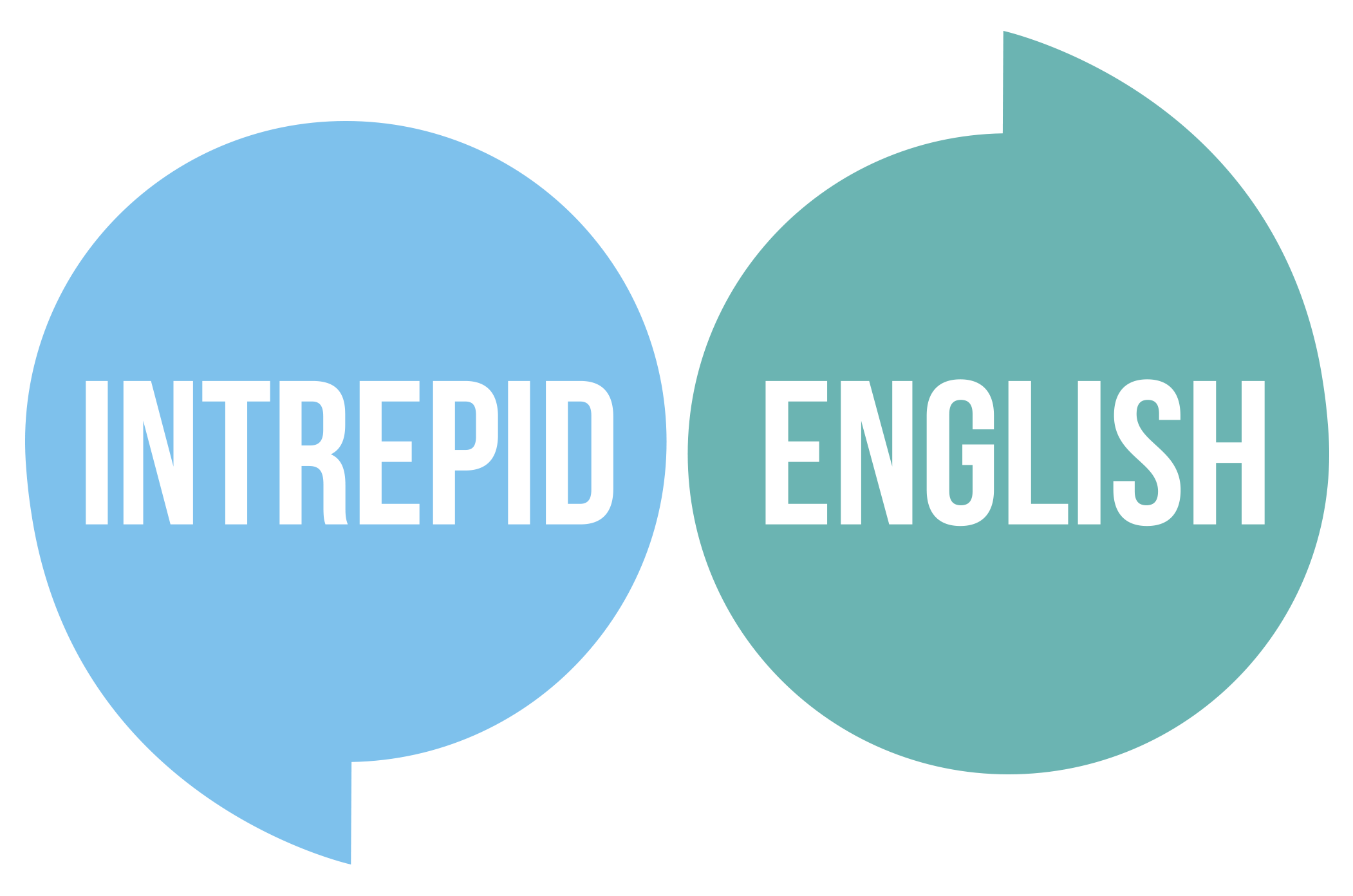

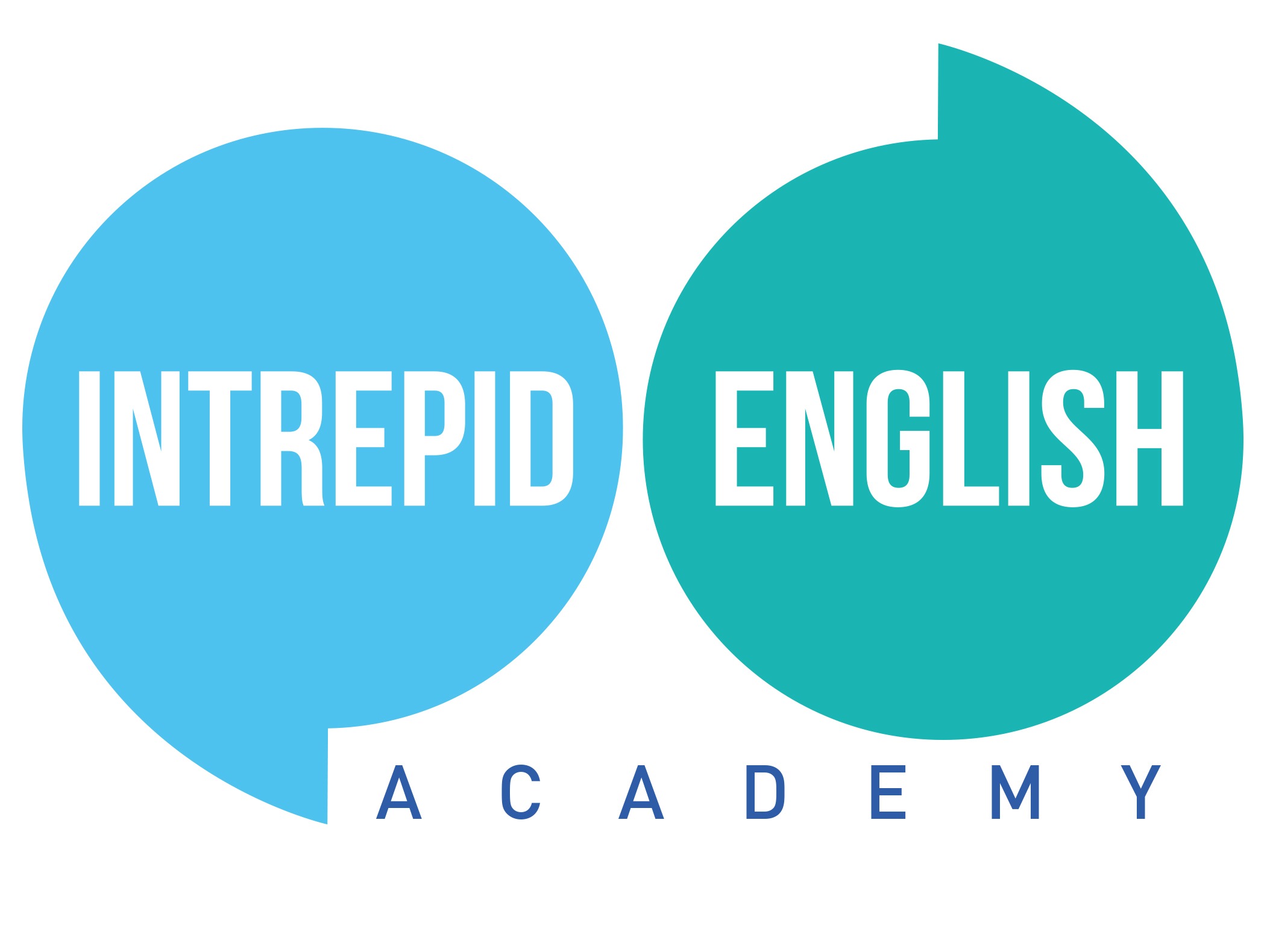

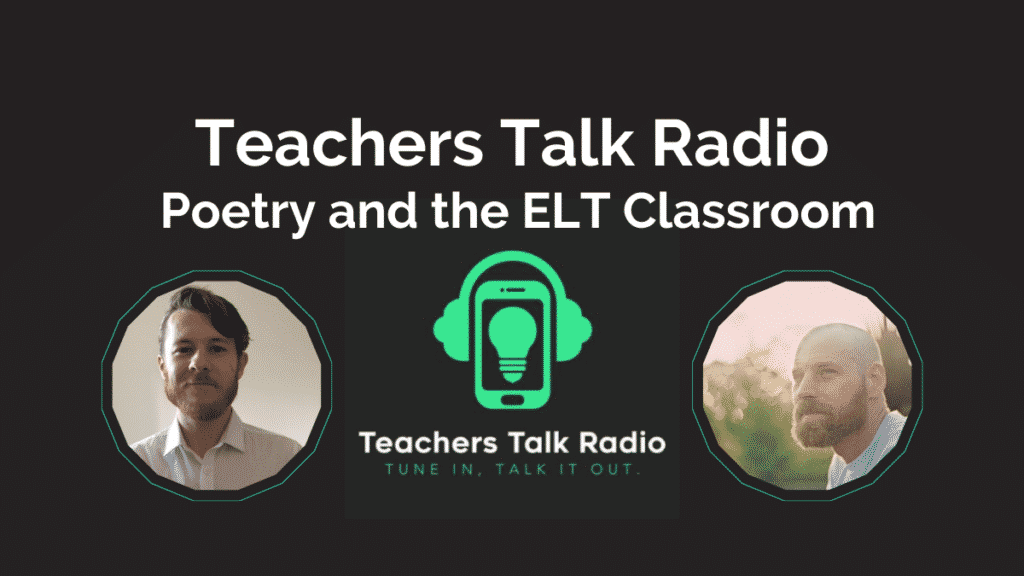
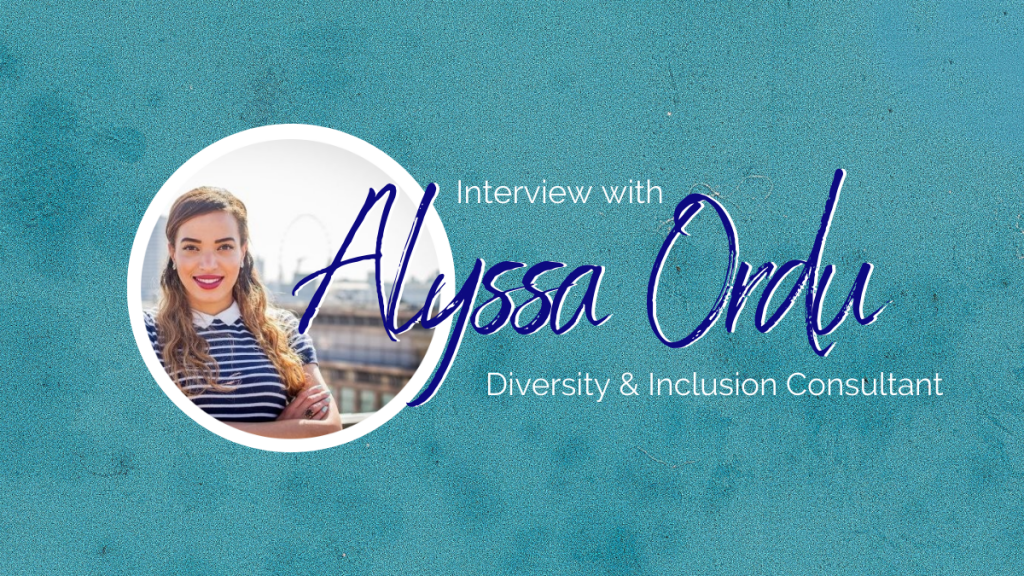

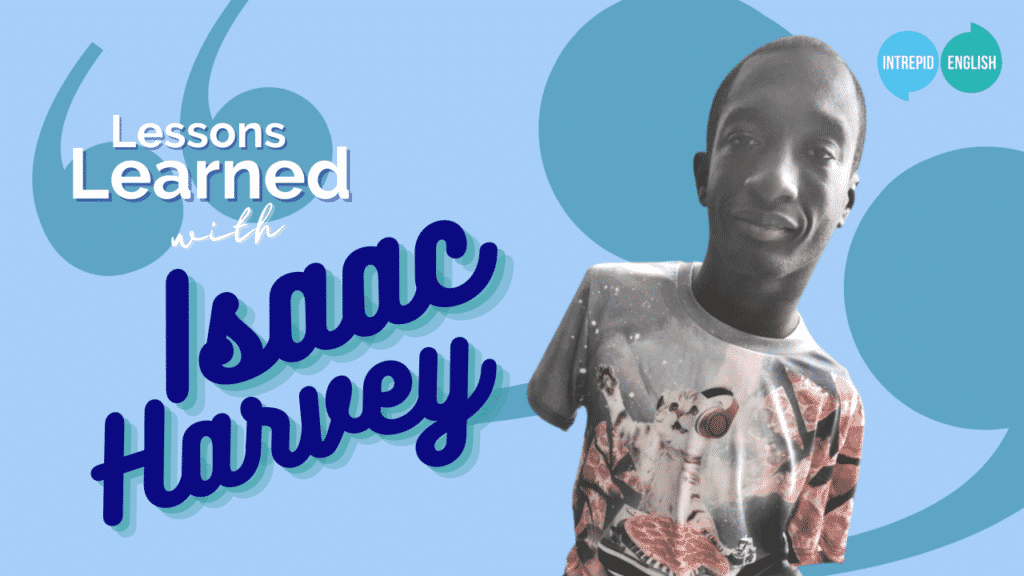

Responses